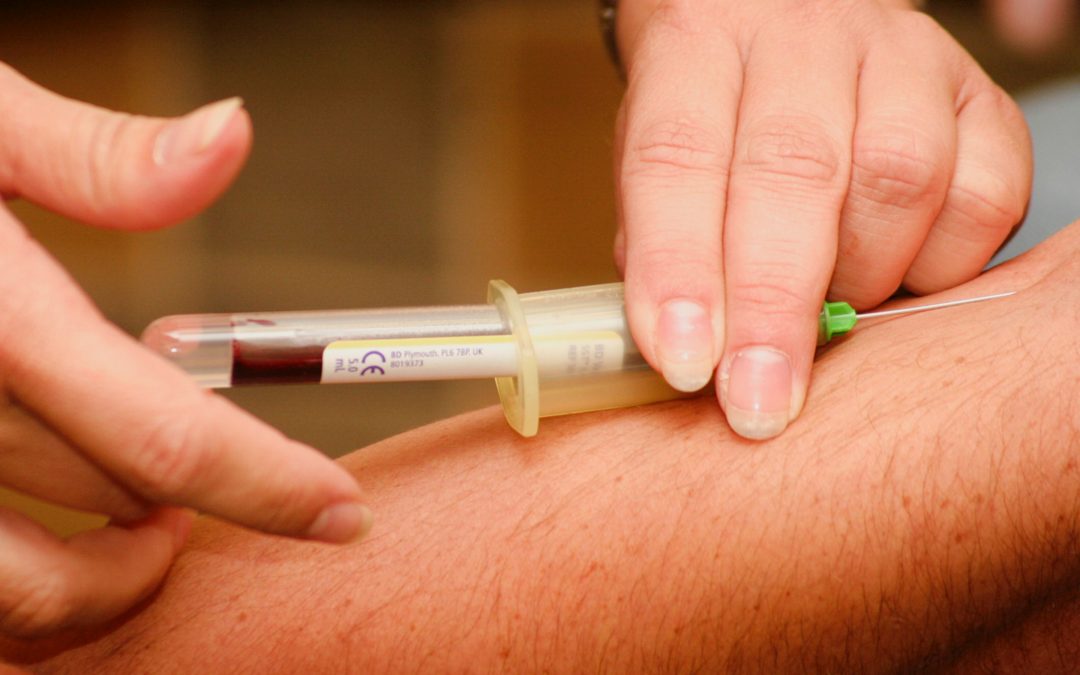When was the last time you got your blood work done? For many, it is within the last year. For others it is in the last 2 years. For others it is longer or not at all.
When was the last time you saw your bloodwork? The actual numbers? For most, it is usual to not get a call because your blood work is normal so you don’t give it another thought. For some, they are told in an appointment that it is normal. Many get a call back for an appointment because there is something that needs to be discussed.
If you get a call back, go in. Take notes. It is important to know what is going on. If blood work doesn’t make sense to you, if you write it down you can ask questions later if you don’t remember what it all means. Ask about follow up blood work or what other tests need to be completed. Ask if there are any conditions being considered so that you have all of the facts.
If you don’t regularly go in to get your blood work, make an appointment. Ask to see the blood work and better yet, ask for a copy. Start keeping your own records. Then you can know if things have changed. Often times things are normal but they slowly change over time. It’s important to know and watch those changes so you can do something about it. A perfect example is thyroid. There is a broad range that can change over time but medication isn’t prescribed until you get to the higher range or over. You can start supporting your thyroid before that, so maybe you don’t get to the point of needing medication.
As a naturopathic doctor I love to look at blood work. In the conventional world, the normal range is examined. We often use a smaller range to help you feel your best. By looking at the individual we can determine the optimal range for you. For example, if you are losing your hair, Ferritin (iron stores) needs to be over 60 but others feel good higher or lower.
Asking for blood work yearly is a good way to keep track of how your body is changing. If you have something to watch, your medical doctor may choose to offer blood work more often. But there is only so often that the lab will perform certain tests. TSH (thyroid stimulating hormone) is only done every 3 months. Vitamin D is done yearly. There are also certain tests that can only be done by a specialist. HLA-B27 (a marker for an autoimmune condition) can only be done by a rheumatologist or an internal medicine specialist.
There are systems that are always looked at. Liver, kidneys, and cholesterol are commonly checked. A complete blood count breaks down your red and white blood cells into separate components. It’s normal to have slight variations in these numbers if you are sick or have allergies. It’s good to compare to figure out what is normal for you. In females, Ferritin is usually checked. If you have inflammation C reactive protein or erythrocytes sedimentation rate is tested.
B12 is sometimes done but should be tested regularly. It helps nerves to work properly but also supports digestion, immunity, energy and mood regulation. It’s important and almost no one eats enough red meat for it to be at a high normal level. Testing the level helps you to make sure you get the right amount.
Vitamin D is expensive in relation to other tests and is not being tested as frequently. Most are low so they are told to take it. But how do you know how much to take? If you are really low then 1000IU is not sufficient. But you don’t want to take too much either, as it is a fat soluble vitamin and can store in your body. In Nova Scotia we just don’t get the sun that we need so it’s hard to replenish with just 1000IU per day.
If you have unexplained joint pain or inflammation you could have your ANA, C reactive protein or erythrocyte sedimentation rate (only 1 of these last 2 is typically needed) checked. Each concern may need different blood work, ask your health care provider what else you may need.
There may be some tests that you cannot get because they aren’t ordered or you don’t have a medical doctor. In this case, there are places in the city where you can pay to have blood work completed. This includes thyroid, B12, Vitamin D and so much more. Talk to your naturopathic doctor about this if you are in that situation.
I’m happy to be a second set of eyes on your blood work. Normal is fantastic but you want to leverage your health and use all of the markers that you can. Please ask questions!


Can a naturopathic doctor order blood work in Nova Scotia?
There is a clinic that does private blood testing but generally the best way to get it done is to have your MD order it. If that’s not an option, then private may be the only option. A Naturopathic Doctor cannot order blood work.
My Dr went through my blood work very quickly and didn’t seem to have any concerns. Dr Tanner took the time to review and explain what the levels should be according to today’s standards. She was able to give me the knowledge and insight I needed to understand my results. I highly recommend getting a second opinion. I was able to get a copy of my blood work results from my family doctor.